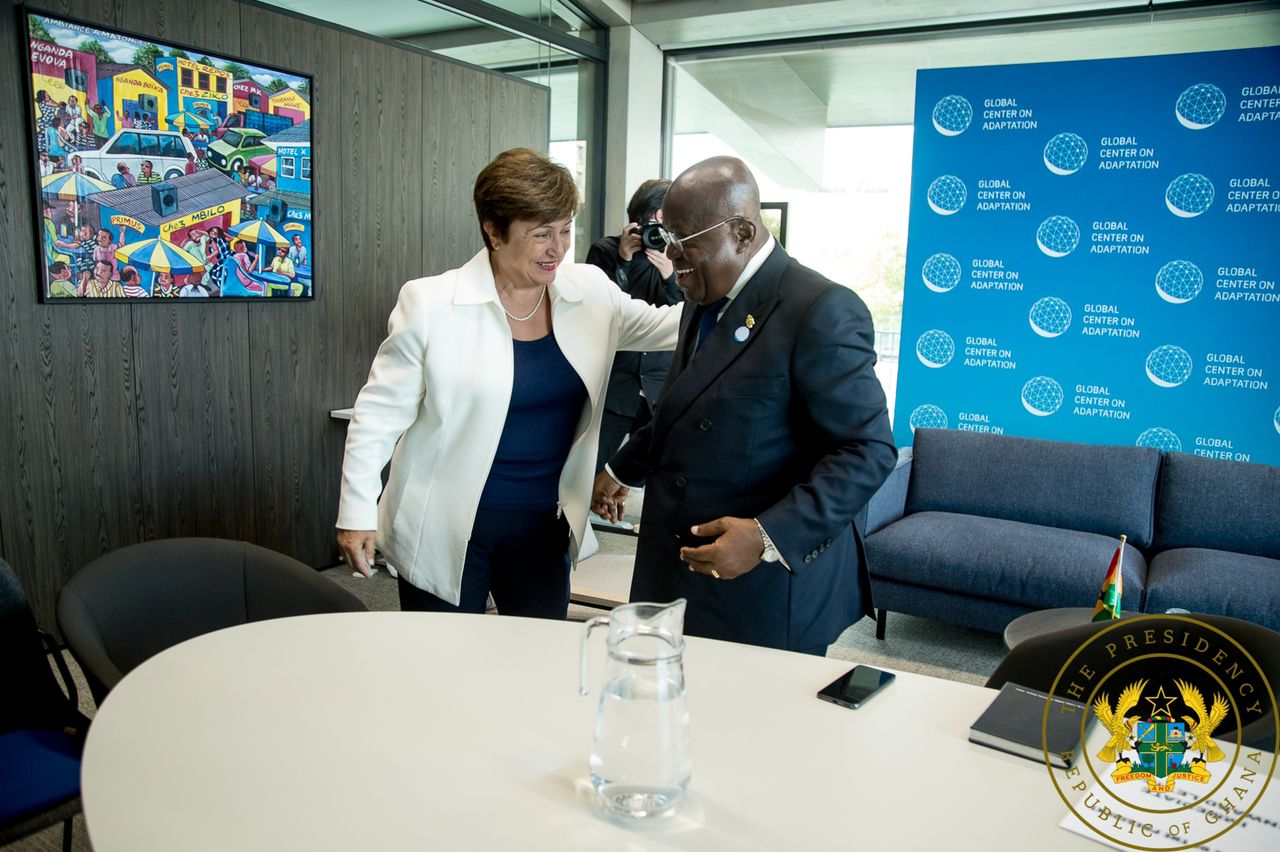Managing Director (MD) of the International Monetary Fund (IMF) Georgieva, has emphasized that Ghana’s current economic challenges are not locally generated but from external shocks.
Speaking on the sidelines of the Fund’s engagements with the Ghanaian delegation, Kristalina Georgieva stated, contrary to the narrative from some opposition elements, that Ghana is not in these challenges because of any bad policies of the Akufo-Addo administration. She stressed that the factors are exogenous.
“We’ve started very constructive discussions already and to the people of Ghana, like everybody on this planet, you have been hurt by exogenous shocks” she said.
She mentioned the extraneous factors which have contributed to Ghana’s economic woes leading to the West African country seeking a bailout from the IMF.
“First the pandemic, then Russia’s war in Ukraine, and that we need to realize is not because of bad policies in the country but because of these combination of shocks, and, therefore, we have to support Ghana”
She also indicated that Ghana is a member of the IMF, a strong country with fantastic people, they have to lend the country support.
She also stated that “but also we have to support Ghana because your strength contributes to the strength of your neighbours, it contributes to a stronger world”
Ghana is before the IMF for $3 billion to help the country navigate through the hostile economic crisis it finds itself in as a result of the adverse effects of the deadly coronavirus pandemic and the ongoing conflict between Russia and Ukraine.
Opposition elements have, on many occasions, disputed these facts, claiming the crisis is the resultant effect of the bad policy choices of the Akufo-Addo administration.
The IMF Chief, by this interview, has trounced that assertion by the opposition National Democratic Congress.
2015 bailout completed in April 2019
By April 2019, government had successfully completed that four-year IMF programme entered into by the previous National Democratic Congress in 2015.
7% GDP between 2017 and 2019
Ina addition, an annual average real Gross Domestic Products Growth (GDP) growth of seven percent was achieved between 2017 and 2019 from 3.4% in 2016;
Fiscal deficit below 5% of GDP before COVID-19
Prior to COVID-19, government maintained a fiscal deficit below five percent of GDP for three consecutive years;
Positive primary balance for 3 consecutive years before COVID-19
The Akufo-Addo government also maintained a positive primary balance for three consecutive years which put public debt on a sustainable path.
Lending rates lowered by 10 percentage points before COVID-19
Before COVID-19 pandemic broke out, lending rates were lowered by over 10 percentage points.
Inflation was 7.6% before COVID-19
Inflation was reduced from 15.4% in December 2016 to 7.6% in 2019 and preserving the integrity of the local industry.
4 months of import cover before COVID-19
By February 2020, gross international reserves improved to reach $8.6 billion or about four months of import cover.
- GMA furious over suspension of duty waiver on vehicles - 3 April 2025
- Thursday, April 3, 2025 Newspaper Headlines - 3 April 2025
- Trump slaps tariffs: Ghana, UK-10%, EU-20%, others-50% - 2 April 2025

